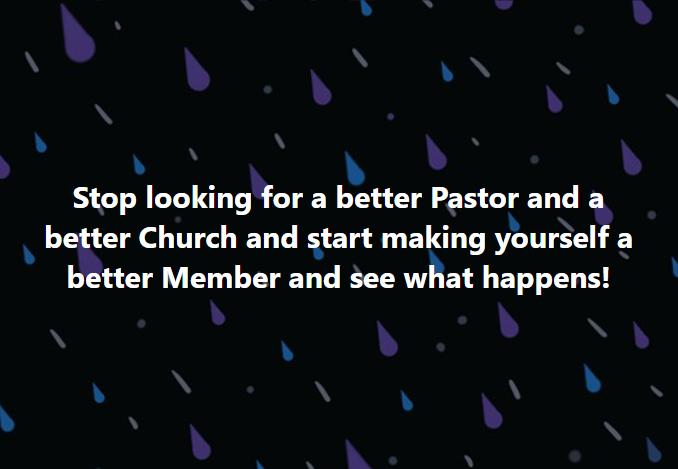Bloom Where You Find Yourself
--
This post has been a long time in the making.
I’ve written parts of it in my head. I’ve tried — and failed — several times already to put my thoughts and feelings into words, but nothing has seemed adequate.
Recently, though, I’ve seen a couple of Facebook posts that seemed targeted toward the issue at hand, and since I’m one of a few people it pertains to, I decided it needed to be addressed.


While I do not necessarily believe the intent behind these posts was to hurt or harm, that’s essentially the indirect effect they’ve had.
The reasons are as complicated as they are deep, but I think it all can be summarized through something that happened to me a few months ago.
Last fall, I was asked to give a presentation at a meeting of a local community service organization. The week it was supposed to take place, though, the number of COVID cases in our county started to rise, so they cancelled all in-person meetings for the foreseeable future.
I hadn’t thought about it since until the friend who had invited me to speak contacted me in April saying that there was a problem — some of the members had found out that I was set to give the presentation and were threatening to quit.
It’s a long story not worth reiterating in its entirety here, but essentially a couple of people had assumed I was going to be giving a partisan political presentation that would “promote the Democratic Party’s agenda” instead of the entirely apolitical (and borderline boring) explanation of our democratic process that I had planned.
Apparently the issue wasn’t only with the subject matter, though, because I was told that “Even if it was a presentation on quilting, these people would still quit if you showed up.”
One of them in particular said he “couldn’t stand me”.
The other, I’m related to.
There are many factors that played into how this situation unfolded, but I think one of the most difficult to deal with has been that I’ve gone to church with the people at the center of it for years.
These are people who have always smiled and talked to me in public but apparently feel very differently in private, something I didn’t realize the full extent of until all of this happened.
These are people who have had leadership roles in the church and community, who I’ve worked and served alongside.
They ultimately (if begrudgingly) concluded that they were okay with the slideshow I’d been working on, but never quite admitted to the fact that they’d acted on an assumption and handled the situation poorly.
While it was being discussed between some of the parties involved, one of them expressed his disappointment in my “leaving” the church.
The thing is, I didn’t realize I’d left.
It’s true that I haven’t been going to church for the past year.
Aside from the situational hindrance of the pandemic, there are a few things I fundamentally disagree with my church on (like LGBT+ leadership within the United Methodist Church) — but these are not new issues.
I also do not believe that a “perfect” church exists, so while those things are disappointing, they’re not enough in and of themselves to keep me from attending.
The main reason I haven’t been going, quite frankly, is specifically because of situations like this.
Ever since becoming more open and outspoken about my political views, I’ve been ostracized by people I thought I knew and have loved.
It has been hurtful and disheartening.
And now, to find out that some members are so willing to openly voice their very specific dislike for me, people whom I’ve always thought I’d gotten along with outside of politics, that’s even more true.
My issue, then, is not with faith, but with religion.
“I like your Christ. I do not like your Christians. Your Christians are so unlike Christ.”
— Mahatma Gandhi
I feel like religion has completely failed me and others like me.
We have been made to feel that we cannot be full participants in the church experience unless we conform to the very small ideals of a select few.
It is fully outside the realm of Christ-like love, which knows no bounds, and has more parallels to the Pharisees than to the Disciples.
Faith does not hurt, religion does.
Faith does not exclude, religion does.
Faith does not demand conformity, religion does.
My faith is fine. My disappointment is with religion.
Many seem to think that if you go to the same church, you should also share the same personal convictions and political ideas; otherwise, you’re misguided, wrong, or unacceptable.
There is little to no room made for diversity — of people or ideas.
If we’re supposed to be the hands and feet of Christ to the world, if they’re supposed to know that we’re Christians by our love, then our churches are failing miserably.
When the first things people associate with Christians are hypocrisy, judgment, alienation, and hurt, we’re failing as representatives of Christ.
And when we, as Christians, conform to those stereotypes for others, it turns people away from rather than toward Christ, which is the ultimate failure.
The way that I and others like me have been treated by people in the church is damaging beyond what they probably realize, not only to us as individuals but to the church and Christianity as a whole as well.
People within the church often wonder at the negative growth of membership over the last few decades. They think that more modern and exciting worship music, or fun youth activities, or far-away ministry opportunities will attract new people.
What they’re completely, fundamentally failing to see is that if those people do not feel welcome — or even comfortable — there, they will not likely stay. They might not even show up in the first place.
Our churches should be a reflection of the communities we live in. These places are not monolithic and our churches shouldn’t be either.
When the entirety of the church is basically composed of the same race and socioeconomic class, when the diverse group of people showing up to outreach events like community meals isn’t represented in the pews on Sunday, it should give the church as a whole pause.
Our population is becoming ever more diverse and accepting of that diversity. When the church not only does not reflect the wider society they exist in but also actively discriminates against it, it’s an even bigger problem.
This is why the American Christian church is dying.
Our entire religion has become so wrapped up with the political right and Christian nationalism that the very large part of our country who does not identify with those things — and indeed, seeks to work against exclusionary social and economic policies and the embedment of Church and State — feels like they do not have a seat at the collective table.
Not only that, but they often feel like the table is purposefully being made smaller specifically to exclude them.
People like me have been made to feel as though we cannot be fully Christian — or fully American — unless we support the very narrow views of the Christian Right.
When we bring up very real and valid concerns about the way this country and our religion have treated and continue to treat people of color and members of the LGBT+ community, we’re called un-American and anti-Christian.
The same people who are calling for Christians to fix the church from within are telling us to “leave if we don’t like it” when we’re critical of the U.S. government and its policies.
The thing is, I’ve tried.
I tried for years to be okay with the hurt I’ve experienced.
I’ve given so much of my time and energy to church projects and programs.
I’ve tried.
And I do miss the people there who I have true — and truly unconditional — friendships with. I also know that I’m not the only one who has felt hurt sitting in those pews. Some have left, and others have stayed. Either way, I don’t fault them. We all deal with things differently.
Which brings me to my conclusion:
I think you have to bloom where you find yourself.
Sometimes people expect you to forever bloom where you’re planted even when it’s in nutrient-deficient soil that barely receives enough rain to survive. They see your flowers as evidence that it’s sufficient, not realizing that your roots are frantically seeking more.
But we are not immobile plants. We have the freedoms of movement and will. We do not have to be limited by our circumstances — if something isn’t working for us, we can uproot ourselves in search of better environment where our unique fruits can thrive.
“But blessed is the one who trusts in the LORD, whose confidence is in him. They will be like a tree planted by the water that sends out its roots by the stream. It does not fear when heat comes; its leaves are always green. It has no worries in a year of drought and never fails to bear fruit”
— Jeremiah 17:7–8
There’s a lot to be said for finding and knowing yourself and where you’re at in your particular journey. Sometimes that means learning to move with the wind and the understanding that you haven’t reached your place yet.
Sometimes, that means being okay with not knowing if or when you’ll return to church and honoring your time as a sojourner.
Wherever we find ourselves, I believe God meets us there — and that is faith.
